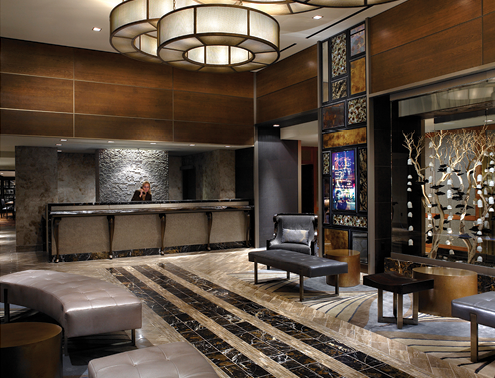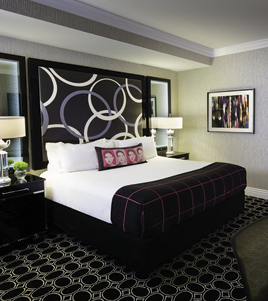- Home
- Media Kit
- Current Issue
- Past Issues
- Ad Specs-Submission
- Ad Print Settings
- Reprints (PDF)
- Photo Specifications (PDF)
- Contact Us

![]()
ONLINE

The Original
Boutique Brand
Editors’ Note
A 25-year hospitality industry veteran, Matthew Hurlburt began his career in California, initially at Woolley’s Petite Suites in Santa Ana and then the Hyatt Regency Long Beach. He moved to Dallas, working at Hyatt Regency DFW Airport, before making his way to New York, where he worked at the Grand Hyatt New York. Hurlburt then headed to Washington, D.C. and, from 1998 to 2012, held successive management positions at the Hyatt Fair Lakes in Fairfax, Virginia; Hyatt Regency Crystal City in Arlington, Virginia; Hyatt Regency Washington on Capitol Hill; and Grand Hyatt Washington. In 2012, he joined Kimpton Hotels & Restaurants as General Manager of the Hotel Monaco Alexandria, and in 2013 was named Kimpton’s Area Director of Hotel Operations for the Mid-Atlantic Region, where he oversaw seven properties in Washington, D.C. totaling more than 1,100 keys and over 300 employees.
Company Brief
San Francisco-based Kimpton Hotels & Restaurants (kimptonhotels.com) is a collection of boutique hotels and chef-driven restaurants in the U.S. founded in 1981 by Bill Kimpton. Its hotels offer authentic and unscripted customer care, stylish ambience and embody a certain playfulness in its approach to programs and amenities. Adjacent to the hotels are locally-loved, top-rated, Kimpton restaurants. Kimpton is a leader in ecological practices through its innovative EarthCare program that spans all of its hotels and restaurants. The company operates 58 hotels and 67 restaurants, bars and lounges in 24 cities.

The lobby of the Kimpton Muse Hotel
How do you define the Kimpton brand?
One of the things we’re most proud of is that Kimpton is really the original boutique brand. We were the first company that made boutique an actual segment within the industry. We owe that to our founding owner, Bill Kimpton. He was a person who saw an opportunity to share with people what he had experienced in his own travels throughout the world staying in smaller boutique hotels that were often family-owned or run and that had a care and sensibility that reflected the local essence of the place he was visiting. It was not about being homogenous so that wherever you go, you’d get the exact same thing. It was the opposite of that. Instead, when you stayed in a city or in a hotel, you really got to experience that local place. That was what inspired him.
We started with our first hotel in San Francisco in 1981. At the time, he didn’t envision a global company at all. In fact, he didn’t want to emphasize his name. In the early days, it was more about the individual names of the hotels without something attached. He wasn’t trying to take over the world. He was trying to share what he had found to be a great way to experience a hotel in a city in a place that you’re visiting, and we’ve grown from there.
Will guests find common characteristics in each Kimpton property?
There are some things that we like to make consistent, only because we feel that they help define who we are. These are the little touches that make a guest feel welcome. For instance, we always have a music styling in our hotels and restaurants, but it is customized for each property. We actually have a person in our company whose job it is to help curate music lists for each space and each hotel so the music styling is customized for each property, but the common element is always having music.

A king room
How is Kimpton Muse Hotel positioned in the market?
One key aspect of the Kimpton Muse is its location. We are right in the heart of Times Square on 46th Street between 6th and 7th so on one side, you’re at Times Square, and at the other end of the block is Rockefeller Center and tons of large law firms and media companies and corporate giants. The property makes a very natural transition from corporate business travel during the week to the leisure traveler on weekends or holidays who want to experience Times Square.
We try to position the property to be that home-away-from-home and an oasis for launching your trip to New York, no matter whether you’re there for business or for leisure. We really focus on being knowledgeable about New York so we can help people with restaurants or other activities in the city. We make sure we stay up to speed with what’s happening and with what people are looking for.
The property has also been going through some renovations that have been very beneficial. We just finished a large renovation that created a brand-new fitness center and business lounge. Those spaces are both designed to help our guests, whether they be there for business or just want to have some time to workout or focus on their health and well-being. The spaces came out beautifully and have been very well-accepted by our guests.
We also have a new bar that we’re very proud of that we incorporated into our lobby space which allows people to relax in the lobby. It has been very successful.
What advice do you offer young people entering the hotel industry?
I tell them to make sure they take opportunities to work in different departments within the hotel. People sometimes gravitate towards the front office and the front of house leadership positions because they’re in the limelight and they feel like they are on stage there and they can quickly move from position to position within that context. But they shouldn’t forsake the back of house departments like housekeeping. This gives them such a great experience from a management standpoint in working with employees and making sure they’re focused and that they’re supported and respected. Everyone needs to be treated fairly and consistently. This experience will push their management style in a different way.
Another key for young managers is sales and revenue. As they grow more in their careers and need to deal with financial pressures and ownership groups, sales and revenue becomes vastly more important because it sets the tone. If we don’t have a strong sales pipeline or manage our revenue correctly, then operations is going to suffer.
I tell young managers to take on as much as possible and to really ingrain themselves in whatever they have the opportunity to experience. Take advantage of any meetings you can join and any connections you can make with folks in every department. This will give them a better background to understand the overall business and to be able to speak to and help drive the business should they become a GM.![]()